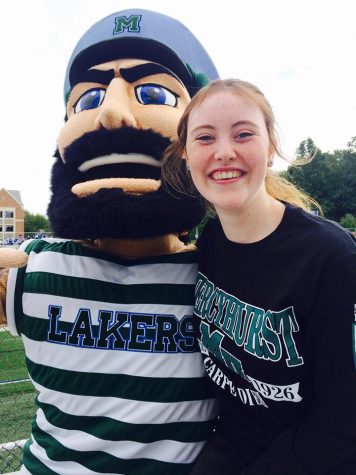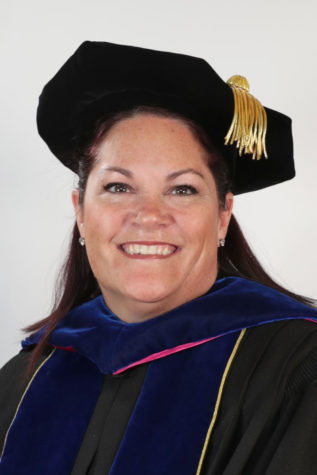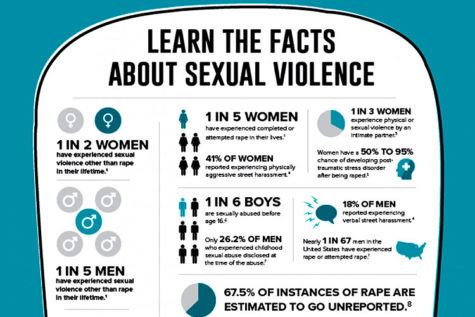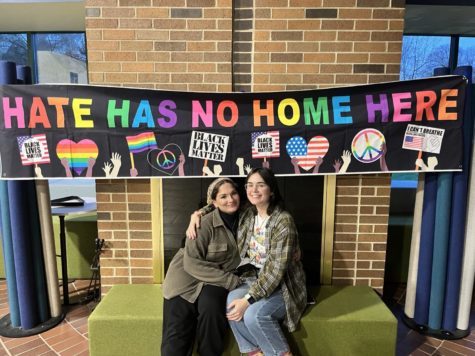Innovation Beehive network expands project, gains lab
March 17, 2021
Mercyhurst’s role as part of the Northwestern Pennsylvania Innovation Beehive Network has been expanded through further grant funding and the opening of Mer-cyhurst’s new Innovation Entente Lab.
The Innovation Beehive Net-work was formed in 2014 to enhance business development in the region. It combines university efforts from Mercyhurst, Gannon, Penn State Behrend, Edinboro University and the Blasco Erie County library to foster community entrepreneurship and innovation. Team members from the universities help clients identify key marketing strategies, potential funding, and necessary strategic media options to help small business owners get on the path to success. Specifically at Mercyhurst, students provide competitive intelli-gence and graphic design products to clients as part of the program. This student’s real-world experience but also makes a meaningful impact on real businesses that might not otherwise have access to expensive competitive intelli-gence resources.
The initiative currently em-ploys 15 student analysts and two graphic designers and is set to expand. The initiative itself is overseen by Brian Fuller, director of Operations for the Ridge College, while the Innovation Lab is run by Abbey Lesniewski, who oversees its day-to-day operations and coordinates its mobile capabilities.
“Each of the colleges in the Bee-hive Network has different areas of expertise that they can provide to local entrepreneurs or small businesses looking to expand. For example, Gannon can help with small business development while we focus on the intelligence side and provide business intelli-gence data. After we help them, we can also send them to another node in the network for further projects,” Fuller said.
On March 1, 2021, the Innovation Entente Lab was opened in the lower level of the Hammermill Library to give students a central place to complete their work and meet with clients in a professional setting. Funding came from an $89,000 grant from the Erie County Gaming Revenue Authority and a three-year grant of $376,000 from the Appalachian Regional Commission. This new funding allows the Innovation Lab to provide on-site support (when COVID-safe) by taking teams of students on the road to serve clients in their own environments. This aspect of the Beehive Network will be known as the mobile unit. Until recently, the Beehive Network had served a five-county area. Thanks to increased grant funding, it has expanded its regional coverage to include 17 counties, including parts of New York and Ohio. Libraries across the counties will be used to market the Network and set the framework for entrepreneurs.
“We are completely funded by grants,” said Fuller. “These helped us to build the lab but also help us to cover our personnel and operational costs. This initiative is a model for collaboration- it has been amazing to see universities, libraries and those within Mercyhurst come together for this.”
Collaboration has been key in all regards for the Beehive Net-work and the Innovation Lab. Even just at Mercyhurst, the lab itself was designed in part by students Addison Richmond, Claire Orr, and Olivia Minichelli; overseen by Dionne Veitch; supported by the Provost and Associate Provost, and furnished and finished by the university’s maintenance team. Maintenance hand-made various aspects of the lab and installed a table centerpiece with another collaborative aspect – a table designed from reused barn wood by Mercyhurst alumni from the Willow Creek Barnwood Furniture company.“The lab is designed for creativity,” said Fuller. “We want our analysts to think critically but use their creative minds for the clients, especially within the Intel field. This is a space for that.”
Alaina Stromenger is a junior Intelligence Studies major who has been involved with the Bee-hive Network since October 2019.“The lab is a great place to work on projects for clients in Erie and I feel fortunate when I can see client’s success in the Erie area and know that I have helped them in some way,” Stromenger said.
Fuller noted that the initiative now averages 40 clients a year. “With the latest grant,” he said, “we are looking to increase production by 25 percent this year and another 40 percent in years two and three.”For students, this only means more opportunity.“Most of all, we want this to be a place where students can grow and have fun doing it,” Fuller said.








